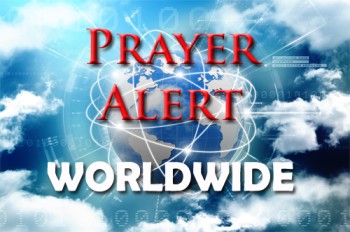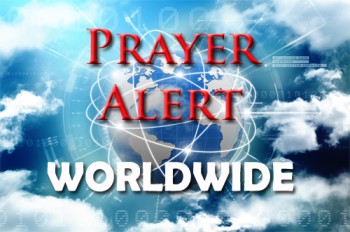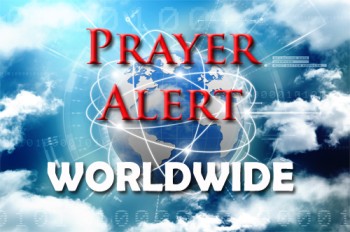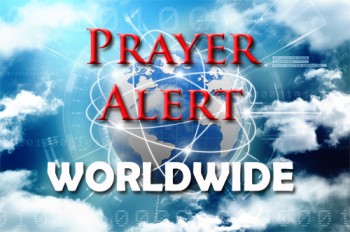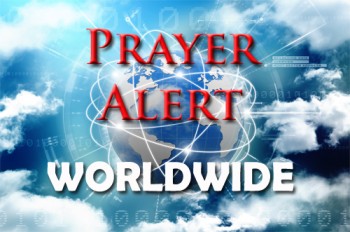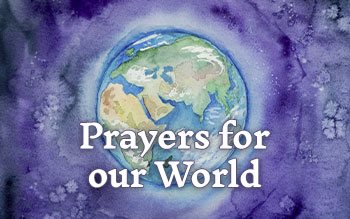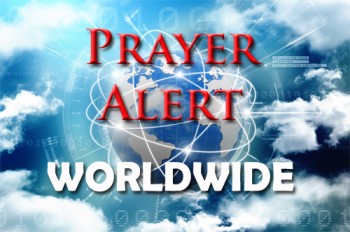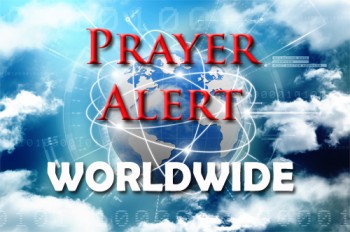Displaying items by tag: humanitarian aid
Cuba: USA set to remove ‘terrorism’ designation
As Joe Biden nears the end of his term, he is set to remove Cuba’s designation as a ‘state sponsor of terrorism’. This decision comes after an assessment found no evidence supporting Cuba’s continued listing. However, with Donald Trump soon to take office, the move may be symbolic and subject to reversal. Cuban officials welcomed the ‘overdue’ action, pointing out the harm which the designation caused to their economy and population. The designation, originally made in 1982 under Ronald Reagan, has been rescinded and reinstated several times. While some Republicans plan to challenge the move, the change could allow US humanitarian organisations to provide aid to Cuba without facing sanctions. In response, Cuba announced the release of 553 prisoners, including some linked to the anti-government protests in 2021.
Gaza: US says Israel has not violated its laws about blocking aid
The USA has stated that Israel has not violated laws regarding the blocking of aid to Gaza, even though a thirty-day deadline for increased humanitarian access has passed without full implementation. While acknowledging that Israel has made some progress, such as opening a new land crossing and resuming aid deliveries in northern Gaza, the USA says that further improvements are necessary. However, the UN reports that aid into Gaza is at its lowest level in a year, with the humanitarian situation growing increasingly dire, particularly in northern Gaza, where famine is imminent. The UN calls the ongoing Israeli blockade a violation of international law and a humanitarian crisis. Humanitarian groups report that conditions in Gaza have worsened, and aid is still being obstructed. Meanwhile, more people have died following further exchanges of airstrikes between Israel and Hezbollah: see
Canada: giving thanks for Canairelief heroes
On 11 May family, friends, and many people who were involved in the Biafran airlift during the Nigerian civil war gathered at St Andrew’s Church, Toronto to dedicate a memorial plaque to four Canadians who died when their plane carrying food and medicine crashed on 2 August 1969. The plaque also honours all ground and air crews who worked for Canairelief and Joint Church Aid. Their work resulted in the largest non-governmental humanitarian airlift in history, funded entirely from public donations. Prayer Alert’s editor, David Fletcher, attended the ceremony, which also recognised the founders of Canairelief, one of whom was his father, Henry Fletcher. For more information, a full-length documentary about Canairelief (‘Operation Lights Out’) is available online to rent or buy.
Gaza: ceasefire extended
On 30 November Israel and Hamas struck a last-minute agreement to extend their ceasefire for a seventh day. Both sides agreed to extend the truce, with Hamas releasing more hostages and Israel receiving a list of those to be freed. So far, 97 hostages have been released by Hamas and 180 prisoners by Israel: however, there are reports that israel has been arresting more Palestinians. https://www.aljazeera.com/news/2023/11/28/arrests Washington hoped the truce could be extended further to free more hostages and let more aid reach Gaza. The ceasefire has allowed 220 lorries a day to bring in humanitarian aid to the strip, but two-thirds of its residents are homeless and more than 15,000 have been killed during the Israeli campaign. The USA has urged Israel to specify safe zones for Palestinian civilians if and when its offensive resumes. Meanwhile, soon after the agreement three people have been killed and six injured by Hamas gunmen in Jerusalem: see
Ethiopia: man-made famine crisis
In Tigray 353,000 starving people are in phase 5 (catastrophe) and 1.769 million in phase 4 (emergency). In other words, famine, though the Ethiopian government refuses to call it famine. Huge numbers of deaths by starvation are unavoidable. In remote villages people are found dead in the morning, having perished overnight. Women who were kidnapped by soldiers and held as sexual slaves, now in hospitals or safe houses, are separated from their children, tormented by the fear they will starve without their mothers' care. Death by starvation happens when the undernourished body consumes its own organs to generate enough energy to keep a flicker of life. Most of the nation is controlled by rebels or military who do not cooperate with humanitarian agencies. Eritrean forces joined the conflict and along with the Ethiopian army they pillage, burn crops, destroy health facilities, and prevent farmers from ploughing their land. This is a man-made famine. There is no drought, and last year's locust swarms have gone.
St Vincent: volcano still erupting - colossal cleanup
St Vincent appealed for international help as the nation tackles the daunting cleanup from a series of volcanic eruptions which are ongoing. The island has a population of 110,000, and 20,000 were evacuated from the dire situation where ash is a metre deep and gives the island an apocalyptic appearance. The ash has been carried as far as India, and there has been extensive damage to agriculture, homes and the island's tourism industry. Long-term humanitarian relief will be huge; on 20 April the UN launched an appeal for $29.2 million for basic needs, clean water, food and shelter, and help to initiate recovery. Pray for the team of experts assessing clean up needs and safe disposal of ash to have wisdom from heaven. There is still uncertainty as eruptions continue. Pray for the safety of those cleaning up the ash. Hurricane season starts soon and is forecast to be very active. Pray for the islanders’ fear to be replaced with peace and hope for the future.
Syria: Top UN officials report ‘shocking’ scale of suffering
The UN chief called on the world to step up “financial, humanitarian and political commitments”, to help end nearly a decade of brutal conflict and suffering across Syria, in a video message delivered to the fourth Brussels Donor Conference on Tuesday.
“After nearly a decade of war and economic hardship, the scale of suffering remains shocking”, said Secretary-General António Guterres.
The conference received pledges of $5.5 billion in funding, to support humanitarian, resilience and development activities in 2020, and $2.2 billion for crisis response in 2021 and beyond. In addition, multilateral development banks and bilateral donors pledged up to $6.7 billion in loans.
Hundreds of thousands of people have been killed; half the pre-war population, or over 12 million Syrians, are displaced, including 5.6 million who fled the country; millions are going hungry or are malnourished; and 90 per cent of the population lives in poverty.
And all of this is being further compounded by the coronavirus.
UN in solidarity
Currently over 11 million Syrians need emergency assistance just to survive, many of whom rely solely on the UN and its humanitarian partners. “We provide life-saving food, healthcare, sanitation facilities, education and protection services, to millions of Syrians every month”, the UN chief said. “We help to address their trauma and provide legal advice so they can start to rebuild their lives” – all of which depends on “generous” donor support.
Since only “a political solution can end the suffering in Syria”, he urged “all those with influence” to help Syrians find common ground.
Downward spiral
Emergency Relief Coordinator Mark Lowcock noted that the Syrian crisis is “approaching the length of the combination” of the two World Wars, as it wreaks havoc and acute economic strain across the region.
He painted a gloomy picture of the Syrian economy in “a dramatic downturn” with prices of essential food, medicines and fuel “soaring” as the Syrian pound “fell to a record low against the US dollar this month”.
The UN official cited estimates from the World Food Programme (WFP) in revealing that an “unprecedented level” of 9.3 million people there are food insecure and almost half a million children suffer from stunting, a consequence of malnutrition.
“And now we have COVOID-19, which has the potential to cause much more suffering and loss, with preparations to tackle it inside Syria wholly inadequate in the light of the degrading of the health system through the years of crisis”, added the humanitarian coordinator.
Mr. Lowcock elaborated on how the UN was supporting the situation on the ground, including by providing food assistance to more than 3.2 million people; nutrition support for half a million children; critical water and sanitation for 1.3 million people; and four million medical procedures.
“The humanitarian assistance we provide across Syria and in the region depends on the generous support of the States and constituencies represented here”, he flagged.
Stolen educations
Noting that “one of the most tragic consequences of the horror story of the last decade has been the robbing of millions of children of their right to a decent education”, he foresaw major long-term consequences, “for more than fifty years”.
“One of the major challenges is funding”, Mr. Lowcock said and asked donors to prioritize pledges to the education of these children, saying it is “in your own interests, but most importantly in theirs”.
‘Unlocking’ a political process
Syrian Special Envoy Geir O. Pedersen reiterated his call for “a nationwide ceasefire”, along with the need to be vigilant about COVID-19, the importance of resolution 2254, which calls for a ceasefire and political settlement, and the challenges posed by groups listed as terrorists by the Security Council.
Moreover, he again appealed for the Syrian Government and other parties to “carry out large-scale, unilateral releases of detainees and abductees, and meaningful actions on the missing persons”. Mr. Pedersen expressed his hope that the Syrian-led, Syrian-owned Constitutional Committee facilitated by the UN in Geneva “will be able to meet on a regular basis throughout the rest of the year”.
Acknowledging that a constitutional discussion would not address the full range of dire realities Syrians grapple with, he maintained that the Committee’s work can be “a door-opener to unlock a broader political process”
Pray: For a negotiated ceasefire and a political settlement.
Pray: With thanks for the pledges of loans and donations to support the humanitarian aid, education and covid-19 relief efforts. May further funds be released to scale up all of these initiatives.
Pray: for the organisations delivering the aid and medical assistance, for protection, good health and free access to those who need their help.
Pray: For the many people who have been displaced by this war, that they will find safe refuge amidst the challenges and hardships.
Pray: for the UN and countries with influence, that they will bring about lasting peace to Syria and the region.
UN news
More than five years of conflict have left Yemenis hanging on by a thread, their economy in tatters, and their institutions facing near-collapse. The UN chief told a virtual pledging conference they needed to demonstrate solidarity with some of the world’s poorest and most vulnerable in Yemen. Pray for UN workers to receive the funding to meet people’s needs in this staggering humanitarian crisis. Across the globe Covid-19 has halted economic activity and threatens social wellbeing. UNESCO says it is now coping with millions in extreme poverty. Pray for the UN to make wise decisions as it addresses the pandemic and mobilises the resources needed for a proactive recovery. In Africa it is addressing the ‘appalling impact’ of Covid-19 on minorities; the virus has a ‘disproportionate impact’ on racial and ethnic minorities, including people of African descent. Pray for human rights to be at the centre of coronavirus response.
Sudan: prayers answered in Blue Nile region
We recently prayed that the preliminary Sudan peace deal with the rebel Sudan PLM would stand and end nine years of fighting and poverty in the Blue Nile and South Kordofan areas. Now the EU is allocating €30 million life-saving assistance to address various humanitarian needs in these areas that have been cut off from international assistance for years. Over nine million people are in need of humanitarian assistance; nearly two million are uprooted from their homes, while the country hosts one million refugees relying on aid for their survival. The EU complements its funding with development assistance that helps communities build resilience to increase people's access to social protection in the long-term.
China: authorities prevent church aid against coronavirus
The Chinese government has introduced even tougher restrictions on religious freedom, requiring church leaders to ‘display complete devotion to the Communist Party’. The rules limit communications between churches and overseas organisations, including donations. But even before the new rules took effect on 1 February 2020, there were reports that Chinese officials were confiscating aid intended to help churches fighting coronavirus. Dr Lin, who gave early warning of the virus, was a Christian. A Chinese Christian wrote on social media, ‘Some overseas Christians shipped supplies designated to serve hospitals through local churches. Yet the supplies were confiscated and the Christian who received the shipment was invited to “have tea” with the police (a common practice to intimidate and threaten citizens).’ Despite increasing persecution, Christians in Wuhan have been handing out face masks on the street and sharing their faith with pedestrians.
